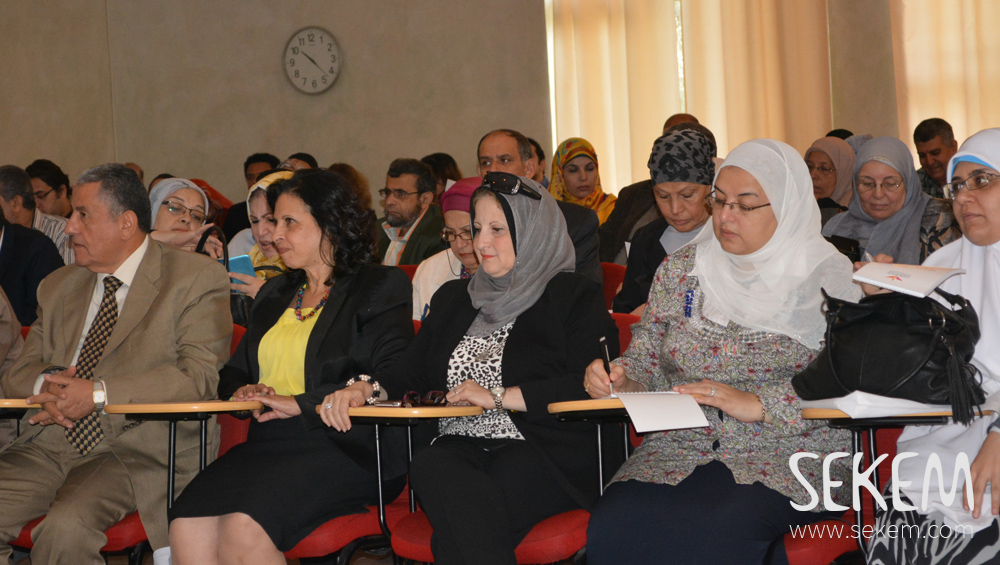On Saturday November 14, a conference regarding Organic agriculture has been held by Heliopolis University for Sustainable Development (HU) under the umbrella of SEKEM. Professors and experts attended the event to discuss problems and challenges that Organic agriculture in Egypt is facing and how they can be solved.
The HU event started with a welcoming speech by SEKEM founder Dr. Ibrahim Abouleish. He then introduced Dr. Kadria Abdel Motaal, Director of Academic Research at HU, who spoke about the challenges and solutions Egypt is facing when it comes to research and development in regards to Organic agriculture. “A good research is done by groups, not individually. The main goal for any research is to analyze the problem and offer a solution”, Dr. Kadria said.
“We are losing huge pieces of land every second…”
By analyzing the challenges that impede the spreading of Organic agriculture in Egypt, the conference focused on potential solutions to overcome these obstacles. “Water scarcity, environmental pollution or soil erosion – we are losing huge pieces of land every second (more than 10 million ha per year)”, Helmy Abouleish, CEO of the SEKEM Group remarked and linked to the high costs that desertification and land degradation are causing on the long run. Abouleish thereby mentioned the high important role that Organic agriculture is playing when it comes to community building. It supports, for instance, health, by offering healthy food to the people or maintains food security, so that Egypt’s dependence on imports decreases.
As the first session of the conference was dedicated to the challenges and efforts that have been made to find solutions for the progress of Organic agriculture, Tarek El Arabi, project coordinator at Libra, SEKEMs company for composting and cattle management, introduced a project called BioGuard. In cooperation with IFOAM (International Federation of Organic Agricultural Movements), Technical University of Graz, Austria, and the Julius Kühn-Institut, Germany, different studies have been done in regards to Protecting National Economic Crops via Application of Beneficial Microorganisms. Examples of this interesting approach have been presented by Prof. Gabriele Berg (TU Graz) and Prof. Cornelia Samalla (Julius Kühn-Institut).
Healthy Food for all Egyptians
The final session of the conference showed a panel discussion between experts in the field of food research and industry. Different food qualities have been compared with a special focus on what is expected versus the reality. Thus, it will be possible to raise awareness on what is needed on the national level and to offer affordable, high quality and highly nutrition food to Egyptians. In the same time export possibilities might increase. The enriching discussion was joined by Dr. Mamdouh Abouleish, Managing Director of SEKEMs company ISIS Organic, who shared his experiences in the Organic food production and distribution market.
By taking into account the solutions that have been discussed during the conference regarding Organic agriculture in Egypt on a wider national scale, the risks and challenges seem to be conquerable. A prosperous community of healthy people and a flourishing economy became realistic, as long as there is effort and commitment from all different sectors.
Noha Hussein
Read about the Workshop on Sustainable Agriculture
Self Assessment Tool for the Sustainable Business Practice of Agricultural Companies in Egypt

